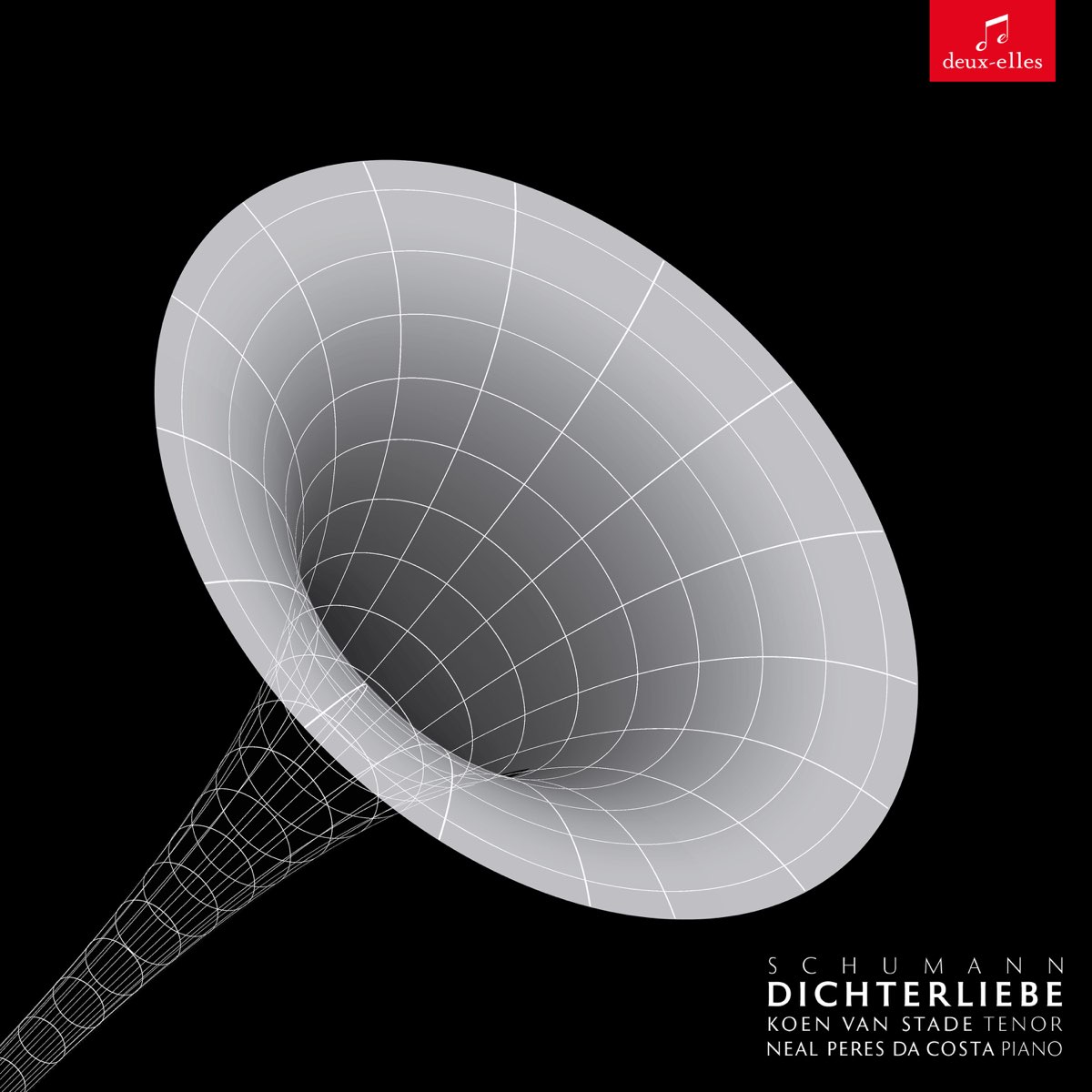The Dichterliebe is Robert Schumann’s best-known song cycle. As one would expect of them, Neal Peres Da Costa and Koen van Stade have delivered a thoughtful and historically informed rendition of that work.
The libretto was written by Heinrich Heine, some years before he satirised German Romanticism in his epic poem Deutschland – Ein Wintermärchen. If Schumann sympathised with that satirism, it is nowhere to be seen in these Lieder.
The first song Im wunderschönen Monat Mai begins almost in media res, as though it is continuing a theme that was already expounded and developed moments before. The entire song cycle is replete with pastoral imagery – birds, flowers and seasons. The first song is entitled “In beautiful May, when the buds sprang” but, in true moody Romantic style, the tone is faltering, not sunny.
Neal Peres Da Costa’s introduction on fortepiano is silvery and controlled. Like the opening of “Gute Nacht” in Schubert’s Winterreise, the introduction features some jarring augmented chords, and Da Costa builds the tension up well. Koen van Stade enters soon after. In this and other songs there is copious use of portamento, where the voice slides between adjacent notes. This is a habit which may seem unnerving to modern ears accustomed to vocal precision. But it is consistent with the performers’ stated emphasis on Schoner Vortrag – breathing life into the notes in a way that is deliberately uneven, volatile and impulsive.
The Aus meinen Tränen sprießen begins sotto voce. There is, in the finest vocal tradition, a sparing and judicious use of vibrato, and only on key phrases depicting suffering and anguish.
The Die Rose, die Lilie, die Taube, die Sonne is something of a lively tongue-twister, featuring as it does a litany of pleasantries. Where that song is pointed, the Wenn ich in deine Augen is rounded and languid. We hear a rather striking vocal tremolo on ‘bitterlich’ – a classic device to depict anguish. The overall impression is of music-making that seeks to revive the age-old ideal of achieving a connection between speech and song.
In the Ich will meine Seele tauchen there is a delightfully impassioned solo for fortepiano which shows off Da Costa’s penchant for articulation.
Harnessing the mercurial temperament of the Romantic style, the following Im Rhein, im heiligen Strome changes tack entirely. It gives the impression of a funeral ode. It is as though Schumann grouped the songs, thematically, into sets of four. The more famous Ich grolle nicht is sung, fittingly, as though it were a conquest. The subject maintains a stoic constancy in the face of heartbreak and grief (“I’ll not complain”). He comes out triumphant. In this we see the old Romantic ideal of the sublime (an experience of conquest) and of what Nietzsche had later called “amor fati”. Van Stade descends to a low C with great visceral force.
The ninth, Das ist ein Flöten und Geigen, is something of a macabre waltz. That itself is a thoughtful evocation of the text, which speaks of “den Hochzeitsreigen”. Van Stade’s alert voice, which gives an impression of immediacy, shows us that the subject is being tossed between two emotional extremes.
In the eleventh, Ein Jüngling liebt ein Mädchen, we see van Stade’s vocal dexterity on full display. He jumps from staccato to legato, and from sluggish to alert, in the space of a beat.
Unnervingly empty spaces hang over the final four songs. In the thirteenth, Schumann has the tenor sing in a vacuum for several bars, as though staring into the abyss. This gave us van Stade’s voice at its barest. In the penultimate we hear Da Costa playing a series of jubilant chords that give the impression of church bells. In the finale there is some extended portamento, as van Stade glides, as though in a breath, from despair to a resigned contentment.
